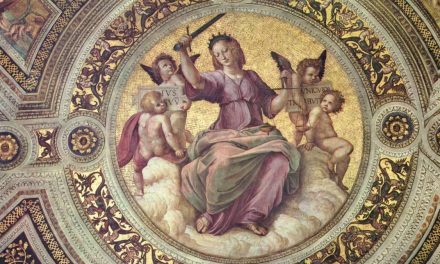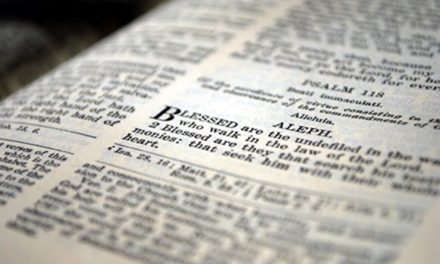How many times have you said the Hail Mary? If you’re in the noble habit of praying the Rosary, you’ve said a lot of Hail Marys. Have you ever thought about the two times we ask for Mary’s intercession in that prayer?
Now and at the hour of our death.
Why? Because those are the only two moments that matter.
The Present Moment
In his famous work The Screwtape Letters, C.S. Lewis has a beautiful reflection on “now” – the present moment. He points out, “the Present is the point at which time touches eternity.”
Lewis notes, under the pen of Screwtape, on the importance of the present moment. The demon Screwtape advises his nephew to distract his human patient from the present moment by tempting him to be greedy, ambitious, or fearful about the future. If the patient can be preoccupied by the future, he won’t be present to eternity.
God gives grace in the present moment. This is why it’s so dangerous to live in either the past or the future. Grace isn’t present there. Does the past cause remorse? Go to Confession and embrace the graces of the present moment. Do you live in the past, nostalgically longing for other days? Bear the Cross that Christ has given you today or ask for a greater spirit of gratitude for the gifts (even the hidden ones) of the present.
Does the future frighten or worry you? Give your anxieties to the Lord. His grace isn’t in the future. When the future becomes the present, his grace will be present.
For God, there is no past and future. He is eternally present. This is why Screwtape points out, “Of the present moment, and of it only, humans have an experience analogous to the experience which our Enemy has of reality as a whole; in it alone freedom and actuality are offered them.” God is with us in the present moment. That is where His grace is. That is where freedom is.
Only two moments matter in life. The present moment and the hour of our death.
The Hour of Death
The hour of death is the last moment we will have to live for him. The hour of death is when the decision will have to have been made: how did we spend our lives? God will not force anyone who did not want to live for him on earth to live with him in heaven.
A priest once noted that if we merit hell at the end of our lives, that verdict is scrawled in the handwriting of the damned, not of God. God allows us to choose. He has given us freedom. Love is a choice; it is not coerced.
At the end of our lives, we will be judged: How did we love God? How did we love our neighbor? St. John of the Cross said, “At the evening of life, we shall be judged on our love.” We cannot be united with God unless we freely choose to love him. But we cannot love God if we sin gravely against him, against our neighbor or against ourselves: “He who does not love remains in death. Anyone who hates his brother is a murderer, and you know that no murderer has eternal life abiding in him” (1 Jn 3:14-15).
This is why the moment of our death is so crucial. The Catechism reminds us, “Death puts an end to human life as the time open to either accepting or rejecting the divine grace manifested in Christ” (CCC 1021). After death, we can no longer merit grace for ourselves. In purgatory, we’ll rely on the prayers of others.
Only two moments matter. Now and the hour of our death.
The Moment of Grace
Our correspondence with the grace in the present moment will dictate what happens at the hour of our death. Every present moment has the capacity for greatness, because every moment is a choice. Will we live for God or for ourselves? The present moment is the moment of grace.
This week, one of my mentors passed away unexpectedly. As I sat in shock at the news, I began to pray the rosary for his soul. My thoughts turned to the fact that he loved the rosary– he walked his dog to the Grotto at the University of Notre Dame and prayed the evening public rosary there frequently (we used to joke that Rowdy the dog has said more rosaries than the average Catholic). Thinking of how unexpected his death was for his family and friends, I thought of how many times he prayed those words: “now and at the hour of our death…” and I have to believe Mary was right there at that moment. That moment wasn’t unexpected for her. She was there. (Please, in your charity, pray for Mike’s soul and the comfort of his family.)
Let us be concerned with eternity and with the present moment. Those two moments matter.
“[God] would therefore have them continually concerned either with eternity (which means being concerned with Him) or with the Present — either meditating on their eternal union with, or separation from, Himself, or else obeying the present voice of conscience, bearing the present cross, receiving the present grace, giving thanks for the present pleasure” (C. S. Lewis).
Let us live in the present, living for eternity.
Image credit: Photo by Towfiqu barbhuiya on Unsplash
Please help spread the Gospel. Share this article with family and friends on Facebook and other social media.














